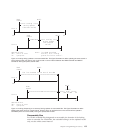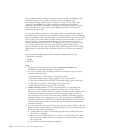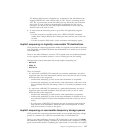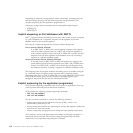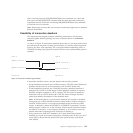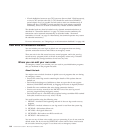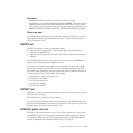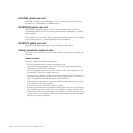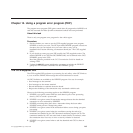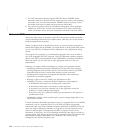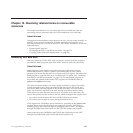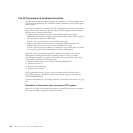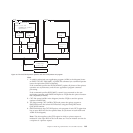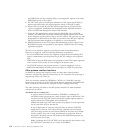
Chapter 14. Using a program error program (PEP)
The program error program (PEP) gains control after all program-level ABEND exit
code has executed and after dynamic transaction backout has been performed.
About this task
There is only one program error program for the whole region.
Procedure
1. Decide whether you want to use the CICS-supplied program error program,
DFHPEP or create your own. The CICS-provided DFHPEP program executes no
functions, but you can include in it your own code to carry out an
installation-level action following a transaction abend (see “The CICS-supplied
PEP”).
2. If you decide to create your own PEP, modify the CICS-supplied version. The
default DFHPEP is in CICSTS41.CICS.SDFHLOAD, and is defined in the CICS
DFHMISC group in the CSD.
Read the guidance provided in the CICS Customization Guide for details on
writing a PEP.
3. Update the GRPLIST system initialization parameter to include the DFHLIST
group list. This includes a definition for the DFHMISC group.
The CICS-supplied PEP
The CICS-supplied PEP performs no processing. Its only effect, when CICS links to
it, is to avoid the DFHAC2259 message that would otherwise be issued.
All CICS facilities are available to the DFHPEP program. You can, for example:
v Send messages to the terminal
v Send messages to the master terminal
v Record information or statistics about the abend
v Request the disabling of the transaction entry associated with this task
However, the following processing applies to the DFHPEP program:
1. DFHPEP is not given control when the task abend is part of the processing
done by CICS to avoid a system stall.
2. DFHPEP is not given control if transaction manager detects that the abended
transaction is to be restarted by DFHREST.
3. DFHPEP processing takes place after a transaction dump has been taken.
DFHPEP cannot prevent a dump being taken.
4. DFHPEP is not given control if the transaction failure occurs during syncpoint
processing.
5. DFHPEP is not given control when the conditions causing the task to be
terminated are handled by the CICS abnormal condition program (ACP). The
conditions handled by ACP are some kind of attach failure; for instance, when
the transaction does not exist, or when a security violation is detected.
6. DFHPEP is not given control when a task has abended and CICS is short on
storage.
© Copyright IBM Corp. 1982, 2010 163



